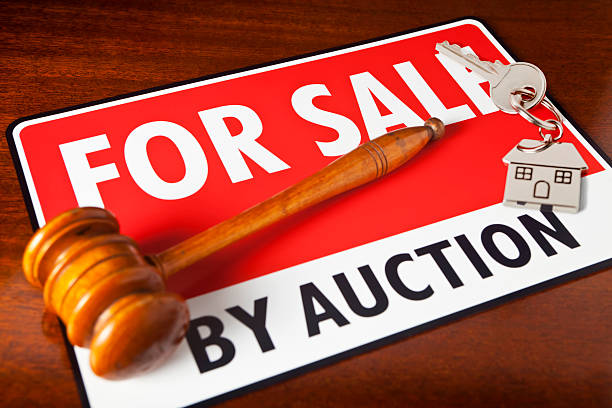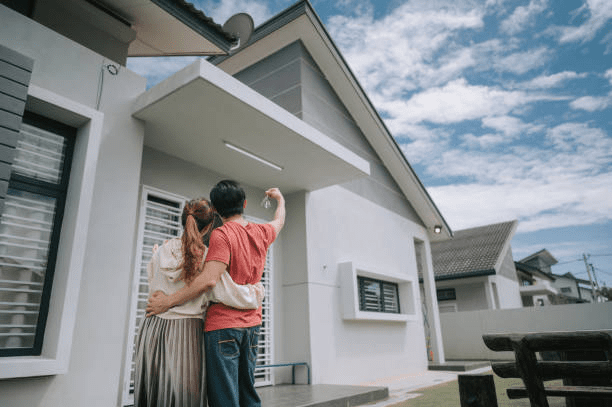What are the steps to buy a house in NSW in 2023? People may want to buy a new property or a new house either to move into, or as an investment property. However, they may not know where to start when they want to purchase a new home/property. It’s important for people to know how to buy a house in NSW whether they are first-time or second-time home buyers.
Buying a house is a huge commitment and will typically involve a number of crucial steps. It’s not easy as one-two-three, however, conveyancing solicitors may make it easy for buyers. Conveyancing is the legal term for buying or selling houses/properties in NSW. The following are the basic steps to buy a house in NSW:
- Finances and how to organise them before buying a house
- Searching for prospective houses or properties and their purchase price
- Submission of offers to sellers
- Organising legal documents (this is the most important step when buying a house in NSW and in other states)
- Contract negotiations for the prospective house
- Placing the deposit
- Cooling off period (if applicable). The cooling off-period is the timeframe where the buyer may cancel the sale agreement anytime without loss.
- Settlement
These basic steps for the buying process will be explained below in more detail for house buyers or sellers.
1. Organising Finances
Organising one’s finances is one of the first steps to buy a house in NSW. One cannot simply plan to buy a house without saving up or organising their finances. The costs of properties and lands may have risen due to inflation, hence, it’s important to have:
- A deposit or a guarantor for the loan
- Additional savings to cover extra costs or out-of-pocket expenses of buying a house
- Home loan pre-approval
- Updates on the buyer’s budget with mortgage repayments
- Updates on the buyer’s ongoing costs like council rates and land tax
The cost of a house in NSW will entirely depend on the property or the seller. Hence, it’s important to seek legal advice from a conveyancing solicitor to find the best deal that fits one’s budget. No one would want to settle for a house, and then later find out that the sale price does not meet their financial expectations.
2. Market Research for the Purchase Price
Market research is an important step when discussing steps to buy a house in NSW. This involves the home buyer thinking about what kind of house they want. They may want to conduct a property search and consider:
- Proximity to groceries, shopping centres, and other public facilities
- Public transport and amenities
- Easements, heritage listings, or caveats
- Condition of the house (if the buyer is purchasing a second-hand home)
- The kind of property they want to buy (house, apartment, townhouse, etc.)
- The number of bedrooms they need
- Car parks and how close it is to the property
It is also important to know the borrowing capacity when buying a house in NSW. They may determine this through their mortgage broker or lender. Lenders mortgage insurance (LMI) is required if buyers borrow more than 80% of the property’s purchase price. This is a one-time premium paid to the lender if the buyer defaults on the loan.
3. Making an Offer
Once the buyer has done the necessary property market research, they may then make an offer to a seller in relation to the prospective house/property. The buyer may make an offer directly through the seller or the seller’s real estate agent if the buyer is buying by private treaty. On the other hand, the buyer must register as a bidder if they plan to buy a house at an auction.

Buying a House in NSW: Private Treaty Sale vs Auction
| Private Treaty | Auction |
| These prices are negotiable, and most sellers expect prospective buyers to bargain. When a buyer agrees to buy a property from a seller, they must exchange contracts in order for the contract to activate. The buyer must sign and date the contract The buyer pays the deposit after. The deposit is usually 10% of the agreed-upon price of the property. The buyer may also negotiate the deposit amount with the seller. Furthermore, the buyer must write and sign all counter offers and offers. On the other hand, the agent must forward all offers to the vendor as soon as possible. The seller will then decide whether to accept or decline the offer. If the seller accepts an offer from a buyer, the successful buyer will have a five-day cooling off period. This is the period where the buyer may cancel the sale agreement anytime without loss. | Buyers may reduce the risk of buying a house at auction. This is if they go over the contract of sale with a solicitor before the auction. The solicitor will negotiate with the seller if there are unfair terms in the sale contract. As part of a buyer’s due diligence, they must check reports regarding: – The building – Pests – Strata (a form of ownership and housing tenure devised for multi-level blocks and horizontal subdivisions with shared areas) – Valuation – Any other relevant reports for the prospective home/property The auctioneer oversees this process and records all bids from potential buyers. The seller will usually set a fixed price before the bidding begins. Furthermore, the seller may also make one bid. The auctioneer will announce this if he/she wants to keep the bidding going. The highest bidder will have to sign the contract of sale and pay the deposit right away. |
4. Organise Legal Documents
It’s also important to organise legal documents when discussing steps to buy a house in NSW. For instance, let’s suppose that the deposit has been paid, and the cooling-off period has ended with no issues.
A solicitor or lawyer may then arrange legal documents for the buyer. Both conveyancers and solicitors should have professional indemnity insurance to protect buyers if errors are made during the process. Some legal documents may include:
- The sale contract
- A Release or Discharge Authority to the bank (this document allows a lawyer to liaise with the bank)
- Loan documents
- Settlement statements
- Any other relevant documents that can help the buyer reach the settlement stage
5. Pre-settlement/ Building and Pest inspection
A pre-settlement inspection is typically made on the last steps to buy a house in NSW. This includes conducting a building and pest inspection. A buyer may expect to receive his/her house at settlement as they found it in the first place.
This essentially means that there should be no damages or alterations on the house when the buyer and seller were negotiating terms and conditions. A building and pest report usually includes :
- Doors and windows
- Floors and ceilings
- Walls and roofs
- Appliances
- Furniture
- Water heaters and electricity
- Security locks and fire alarms
- Any other relevant part of the house/property that requires checking
6. Contract Exchange and Settlement
These are the last steps to buy a house in NSW after a successful pre-settlement inspection of the prospective house/property. Settlement is the completion of the property purchase transaction and typically occurs 6 weeks after the contracts are exchanged.
The buyer’s name will appear in the title and their lawyer will also register the title at the NSW Land Registry Services.
The contract of sale sets out the settlement period, when you have to pay the full purchase price. Your solicitor or conveyancer will finalise the settlement with the lender and seller. Buyers will also typically pay stamp duty which is a one-off state government property-transfer tax.

Our Conveyancing Solicitors’ Legal Advice
Buying a house will require careful planning and budgeting from a house buyer. Moreover, buyers will need to settle a lot of documents in order to go through the conveyancing process seamlessly.
Our conveyancing solicitors at JB Solicitors can make conveyancing procedures more effective for buyers and sellers. We can offer civil disputes and litigation services should legal matters arise on conveyancing matters.
Contact us today if you need assistance with the steps to buy a house in NSW.
